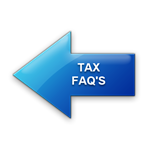How do I determine what is considered a business expense, verses a personal expense?
The IRS says that to be deductible, a business expenses must be both ordinary and necessary for your trade or profession.
- “Ordinary” means similar businesses have similar expenses.
- “Necessary” means the cost is needed to operate the business.
It’s important to distinguish business expenses from personal expenses.
In general, business expenses are deductible if you wouldn't have had the cost without the business. If you would’ve had the expense anyway even without the business, it’s likely a personal expense.
For example, you cannot deduct the cost of driving to your sibling’s house for a birthday celebration, just because you do business with one of the guests. That’s because even if the business didn’t exist, you would’ve gone to the event. The IRS would call this a personal expense.
With that being said, some items are used for both business and personal expenses. Cell phones are a great example. For those items, you would allocate according to its use for each. The same goes with business use of your home, or car. Click here to read more about shared personal and business expenses.
The last thing is that business expenses are only deductible when incurred for a business that has a reasonable expectation of profit. In other words, you can’t just say you’re a golf instructor to write-off your golf rounds! The business must pass the common sense test. Here are some questions from the IRS.gov website to assess the determination of business or hobby:
- Does the time and effort put into the activity indicate an intention to make a profit?
- Does the taxpayer depend on income from the activity?
- If there are losses, are they due to circumstances beyond the taxpayer’s control, or did they occur in the start-up phase of the business?
- Has the taxpayer changed methods of operation to improve profitability?
- Does the taxpayer or his/her advisors have the knowledge needed to carry on the activity as a successful business?
- Has the taxpayer made a profit in similar activities in the past?
- Can the taxpayer expect to make a profit in the future from the appreciation of assets used in the activity?
- Does the activity make a profit in some years?
Remember, the IRS likes to see a business be profitable in three out of the past five years to validate it as being a business, versus a hobby.
Contact us with any questions...we’re here to help!
© 2024 Peshke Financial Inc., all rights reserved. NMLS #2244878. DRE #02210589. "Making Finances Simple. Changing Lives." is a registered trademark with USPTO. Material contained in this website is for informational purposes only and is not meant to be construed as direct financial advice for your specific situation. It is recommended that you consult with your own advisors for any personalized financial guidance. Since we’re not licensed attorneys, we cannot provide legal advice. As such, any info contained in this website should not be construed as direct legal advice. Individual Licensure (see profiles) - click here. Send Docs Securely - click here. Privacy Policy - click here.


